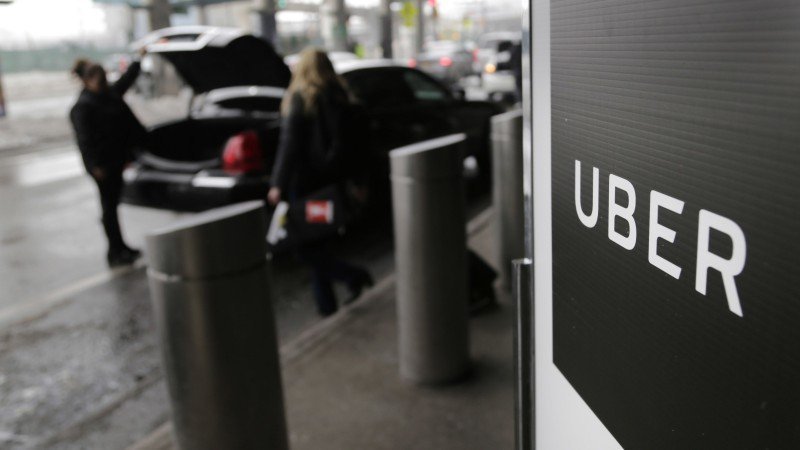70,000 drivers in the country will receive these benefits as a result of a court decision
Uber will give its drivers in the United Kingdom the status of workers, with a minimum wage and paid holidays, a world first for the American company and a 180º turn in the model of digital platforms in the country.
The US giant of car reservations with a driver announced in a statement that its more than 70,000 drivers in the country will receive these benefits immediately, following a court decision.
This is a profound change for Uber, whose drivers were until now self-employed.
The platform acted quickly after launching a wide consultation with its drivers and just a month after a resounding defeat before the British Supreme Court.
It ruled on February 19 that drivers can be considered “workers” and, therefore, receive the corresponding social benefits.
The court ruled in favor of a group of about 20 drivers who claimed this status given the time they spend connected to the application and the control that the company exercises over them, for example through evaluations.
British law distinguishes the status of “workers”, who can receive minimum wage and other benefits, from that of “employees” in the strict sense, who have a proper employment contract.
From now on Uber drivers in the UK will charge at least the minimum wage,
The minimum wage is 8.72 pounds ($ 12.12) an hour in the UK and is set to rise to 8.91 pounds in April.
An Uber driver earns more than that on average, £ 17 in London and £ 14 in the rest of the country.
The company states that all its drivers want to be able to benefit from these advantages, while maintaining the flexibility of their working conditions.
These benefits are in addition to those that already exist, such as free access to health insurance and compensation for parental leave.
“This is an important day for UK drivers,” said Jamie Heywood, Uber’s head of North and East Europe.
“Uber is only one part of the car reservation sector and we hope that other operators will join us in improving the working conditions of these workers that are essential to our daily lives,” he added.
Rate hike?
Uber did not specify the cost of these measures but this, which must be very considerable, will weigh a little more on the fragile finances of a company that is not yet profitable and is going through a bad time due to restrictions against the pandemic.
The group will have to absorb part of the cost, as it can hardly afford a massive increase in its rates, especially in London, where competition is fierce.
But by granting workers’ status to drivers, the company saves long processes in British courts, as the Supreme Court decision could have allowed drivers to go to court to obtain the rights that Uber just granted them.
For now, the group is only taking this step in the UK and will study market by market how it can evolve its model.
Its CEO, Dara Khosrowshahi, presented in February a series of proposals to governments and unions in Europe with the aim of ensuring transparent and fair remuneration for drivers.
The ideal thing for Uber would be to be able to replicate in Europe what it proposed in California, that is, independent drivers but who receive compensation.
Now it remains to be seen if the Uber announcement could have consequences for other digital platforms in the UK that are symbols of the “gig” economy, that is, of precarious and poorly paid jobs.
Deliveroo couriers are awaiting the decision of the London Court of Appeal to find out if they can benefit from a collective agreement for better working conditions.

